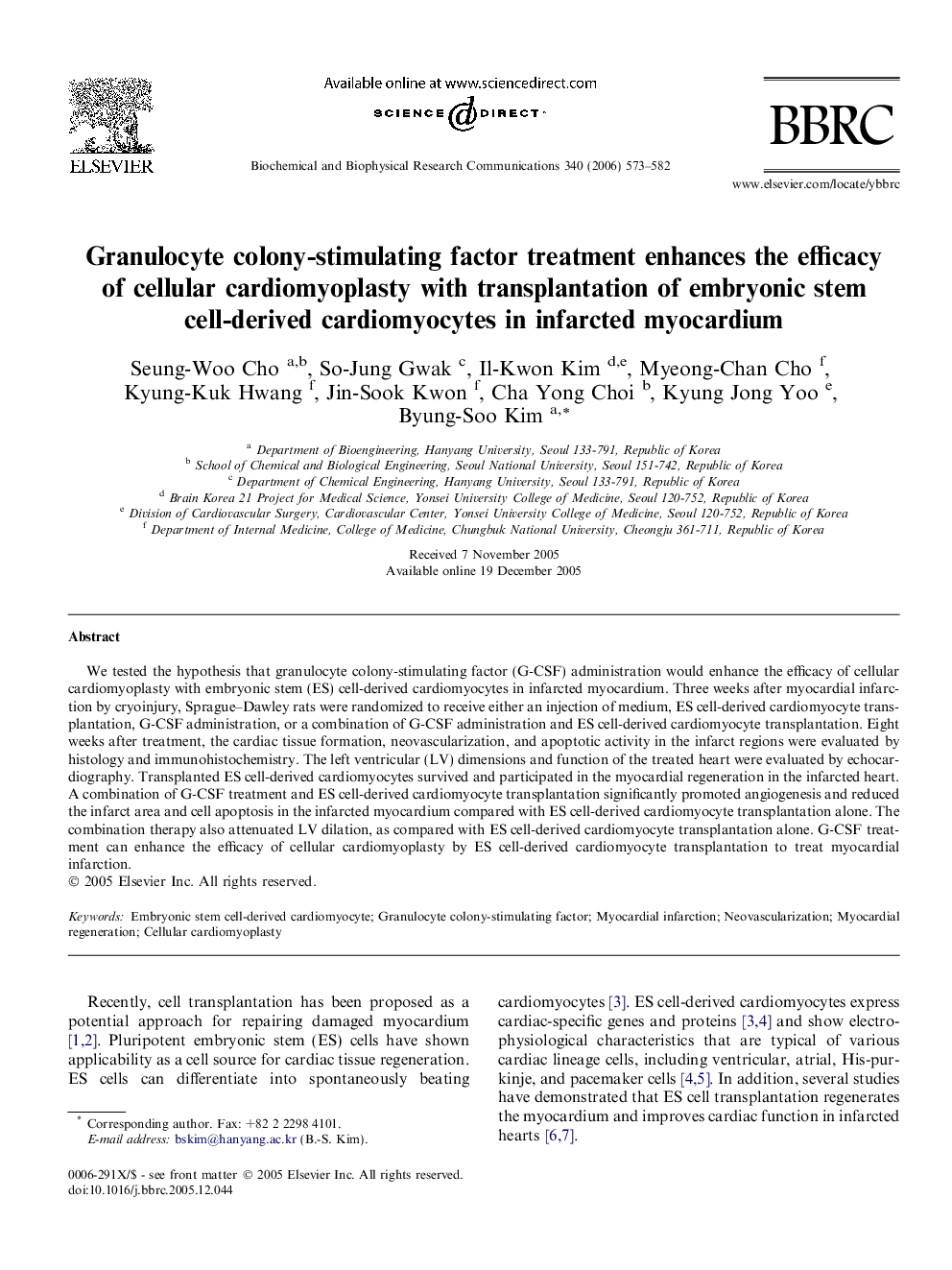| Article ID | Journal | Published Year | Pages | File Type |
|---|---|---|---|---|
| 1940356 | Biochemical and Biophysical Research Communications | 2006 | 10 Pages |
We tested the hypothesis that granulocyte colony-stimulating factor (G-CSF) administration would enhance the efficacy of cellular cardiomyoplasty with embryonic stem (ES) cell-derived cardiomyocytes in infarcted myocardium. Three weeks after myocardial infarction by cryoinjury, Sprague–Dawley rats were randomized to receive either an injection of medium, ES cell-derived cardiomyocyte transplantation, G-CSF administration, or a combination of G-CSF administration and ES cell-derived cardiomyocyte transplantation. Eight weeks after treatment, the cardiac tissue formation, neovascularization, and apoptotic activity in the infarct regions were evaluated by histology and immunohistochemistry. The left ventricular (LV) dimensions and function of the treated heart were evaluated by echocardiography. Transplanted ES cell-derived cardiomyocytes survived and participated in the myocardial regeneration in the infarcted heart. A combination of G-CSF treatment and ES cell-derived cardiomyocyte transplantation significantly promoted angiogenesis and reduced the infarct area and cell apoptosis in the infarcted myocardium compared with ES cell-derived cardiomyocyte transplantation alone. The combination therapy also attenuated LV dilation, as compared with ES cell-derived cardiomyocyte transplantation alone. G-CSF treatment can enhance the efficacy of cellular cardiomyoplasty by ES cell-derived cardiomyocyte transplantation to treat myocardial infarction.
